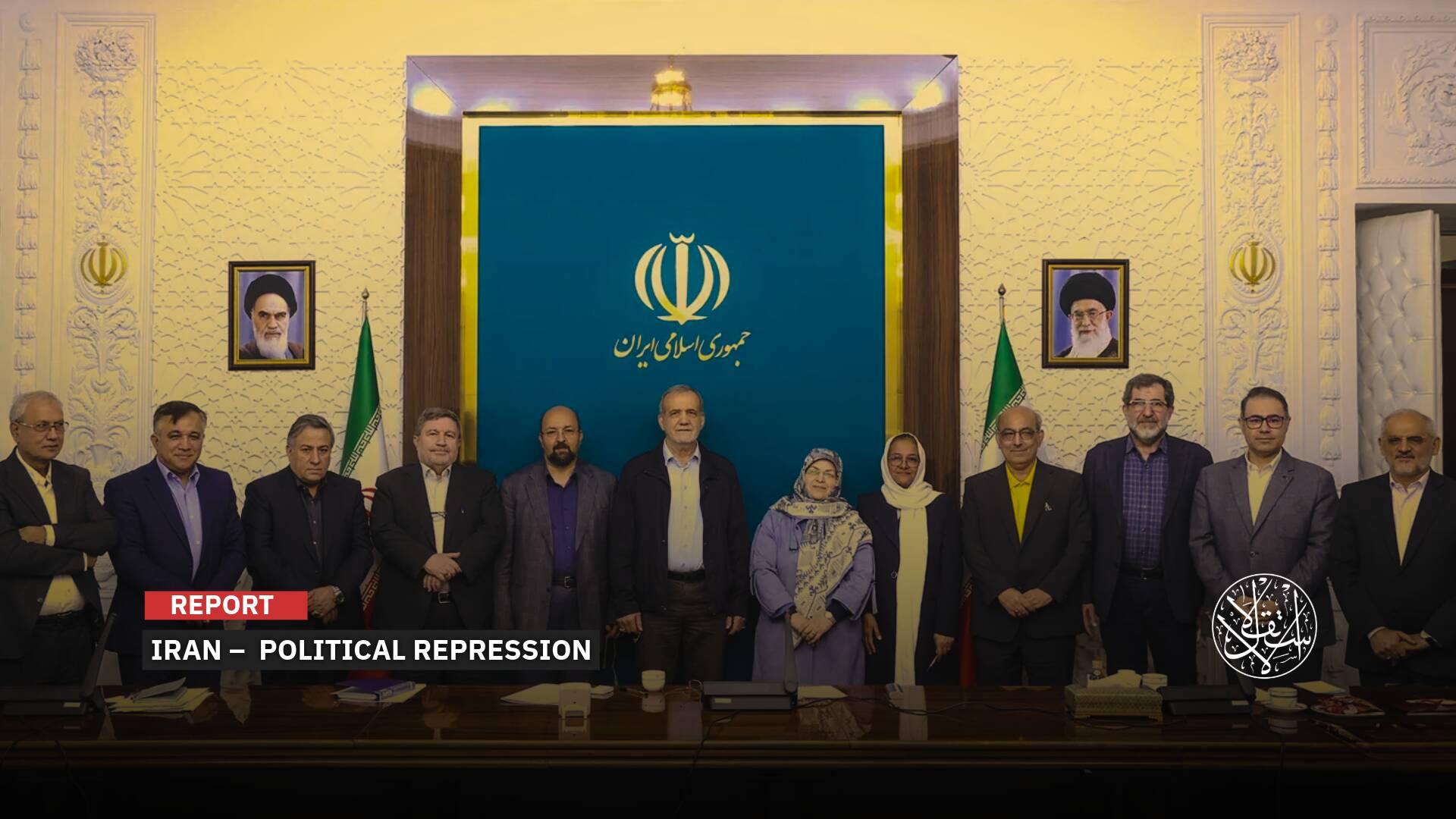Turkish Study Center: Afghanistan's Stability Is 'Key' to China's Success in Asia

Afghanistan has been the "cemetery of empires" that tried to conquer those mountainous countries in Central Asia throughout history. After the Russian and later American defeats, China tried to enter this country through the gate of the economy, not weapons.
The "Ankara Center for Policy and Crisis Studies" published an article by writer Mustafa Jim Koyongo, pointing out that Afghanistan, the Muslim country, was one of the theaters of the Cold War between the Soviet Union and America in the 20th century.
The Turkish Center pointed out that "the clashes increased in the region after America armed the Afghan fighters “mujahideen” in it after the Soviet Union's invasion of Afghanistan, in battles that lasted for 10 years in which Moscow had a crushing defeat."
The writer explained that "with the end of the Cold War, America's hostility shifted from communism to global terrorism, and Washington, at the height of its power, began military operations against the Islamic country with the aim of preventing the emergence of other alternative forces."
He continued, "In line with this goal, America entered Afghanistan to besiege China and Russia geopolitically and control the energy corridors, in a step that it followed by invading Iraq to control energy supplies to countries importing from Iraq and to maintain the petrodollar system."
American Defeat
Koyongo believes that the Afghanistan war, which America started in 2001 under the pretext of fighting terrorism, has entered a new phase in 2021, after the idea of the US withdrawal proposed by the administration of former US President Barack Obama acquired a tangible dimension now.
The Turkish writer predicted in his article that war would end on September 11, 2021, according to the “Doha Agreement” signed between America and the Afghan “Taliban” movement on February 29, 2020, according to a withdrawal schedule announced by Washington.
The latest research conducted by "Brown", one of the most prestigious American universities, confirmed that Washington spent about $2.261 trillion in Afghanistan between 2001 and 2021.
The research showed that the total number of those who lost their lives in this war ranged between 171 and 174 thousand.
"In other words, America can no longer continue this war," according to the Turkish writer.

He added, "Despite America's desire to geopolitically besiege China and Russia by entering Afghanistan, this, contrary to expectations, paved the way for Beijing and Moscow to increase their power."
"Also, these two forces did not witness destabilizing operations on their lands due to the focus of armed groups in the region on attacking the American forces, since they are occupiers," according to the author.
He speculated that, "clashes will increase in the region after the American withdrawal," stressing that "it is difficult to predict the objectives of the armed groups."
He said, “The only thing that is clear here is that the clashes and terrorist attacks that the region will witness will have a small impact on America, but a big impact on the countries of the region.”
The author of the Turkish article believes that "China is one of the closest candidates to fill the power vacuum in the region after the withdrawal of US forces."
He asserted that it "became the second largest economic power in the world in 2010 after the reforms it initiated in the eighties of the twentieth century."
He pointed out that "Xi Jinping used this power in political, cultural and commercial activities all over the world, after he became president of China in 2012."
Koyungu, referring to the "Belt and Road Project" announced by Jinping in 2013, has drawn attention as the greatest example of change taking place.
He stated that, "the strategy of concealing the intent that Beijing has implemented for years has been replaced by a more active foreign policy."
The author of the article believes that "this is where the steps taken by China in solving regional and global problems are gaining importance."
He expected that "China will not be satisfied with watching the developments of Afghanistan idly, while it is active in many regions from the Arctic to Latin America and from the Middle East to Europe."
"Especially since Afghanistan is located in an important geographical area, both in terms of location and in terms of natural resources," Koyongo said.
According to the records of the Chinese Communist Party, official Deng Xiuping said in November 1982: "The problems in Afghanistan are of global strategic importance."
He added, "Also, China and Afghanistan have a common border. Therefore, Afghanistan poses a threat that can encircle China geographically."
Afghanistan’s Vital Role
According to Koyongo, "China has a border with Afghanistan that is the shortest of its borders with the 14 countries that border it."
"However, this 90-kilometer border may be the first area in which a possible wave of armed confrontations in Afghanistan is reflected," he added.
He stressed that "the Taliban movement, which controlled about three-quarters of Afghanistan after America's withdrawal, reached the mountainous border with China by controlling the province of Badakhshan."
"Beijing has benefited from the security environment provided by America to prevent the rise and spread of armed groups that may spread to China, even though Beijing considers the American intervention in Afghanistan a transgression of the borders," according to the author.
He said: "It is not clear whether this environment will continue after the US withdrawal."
"Therefore, China is looking for ways to prevent the spread of chaos and threat to its territory through Afghanistan," he added.
He added, "But as it is well known, all the parties that have militarily intervened in Afghanistan throughout history have failed, for which it has been known as (the graveyard of empires)."
Desiring to improve the economy and raise the level of prosperity in the region by developing trade relations with Afghanistan and launching infrastructure projects, China is reluctant to engage in any military intervention in Afghanistan.
This is because Beijing wants to create an economic corridor between China and Afghanistan similar to what it established with Pakistan, to secure its interests, increase job opportunities and ensure the security of the Afghan pillar of initiatives and projects across the East and West.
The Turkish writer points out here that, "therefore, the stability of Afghanistan is the main key to the success of China's projects in infrastructure, energy and transportation in the economic regions of South and Central Asia."

Chinese officials have made important statements showing their willingness to expand the China-Pakistan Economic Corridor to Afghanistan within the framework of the "Belt and Road" project.
Simultaneously, Taliban spokesman Sohail Shaheen said the Taliban welcome China's investment in Afghanistan.
Here, the article referred to "the possibility of a significant rapprochement between China and the Taliban in this region, especially since Beijing plans to invest in Afghanistan in many sectors, especially underground resources and hydropower."
China’s Ideological Goals
"It is not clear whether the projects and investments that China will initiate will be the target of armed groups," Koyongo said.
He added: "Given what foreign powers are doing in establishing and directing armed organizations and propaganda and espionage activities in Afghanistan, it can be said that the instability that will arise will negatively affect all actors in the region."
He pointed to another aspect, which is China's desire to "achieve ideological superiority in Afghanistan," explaining that "this will mean that Beijing's ideology and policies can achieve stability even in the most difficult regions of the world."
"This is through developing Afghanistan economically and achieving stability, compared to Western countries, especially America, which has not succeeded in Afghanistan for years," according to the author.
He concludes his article by noting that, "the Indo-Pacific region draws an upward line in the current geopolitical balances, while the Atlantic region draws a downward line."
He added, "Therefore, China, as an Asian power, seeks to prevent America from having a footstep in the region and to establish a system in which it is the main actor."
He referred to Jinping's statement about this strategy in 2014, saying, "Asians must solve Asia's problems and ensure its security."
The writer said: "There is no doubt that the US-Chinese conflict will take on a different dimension if Beijing is able to promote the success it seeks to achieve in Afghanistan as the superiority of the East in general and Asia in particular over the West."











